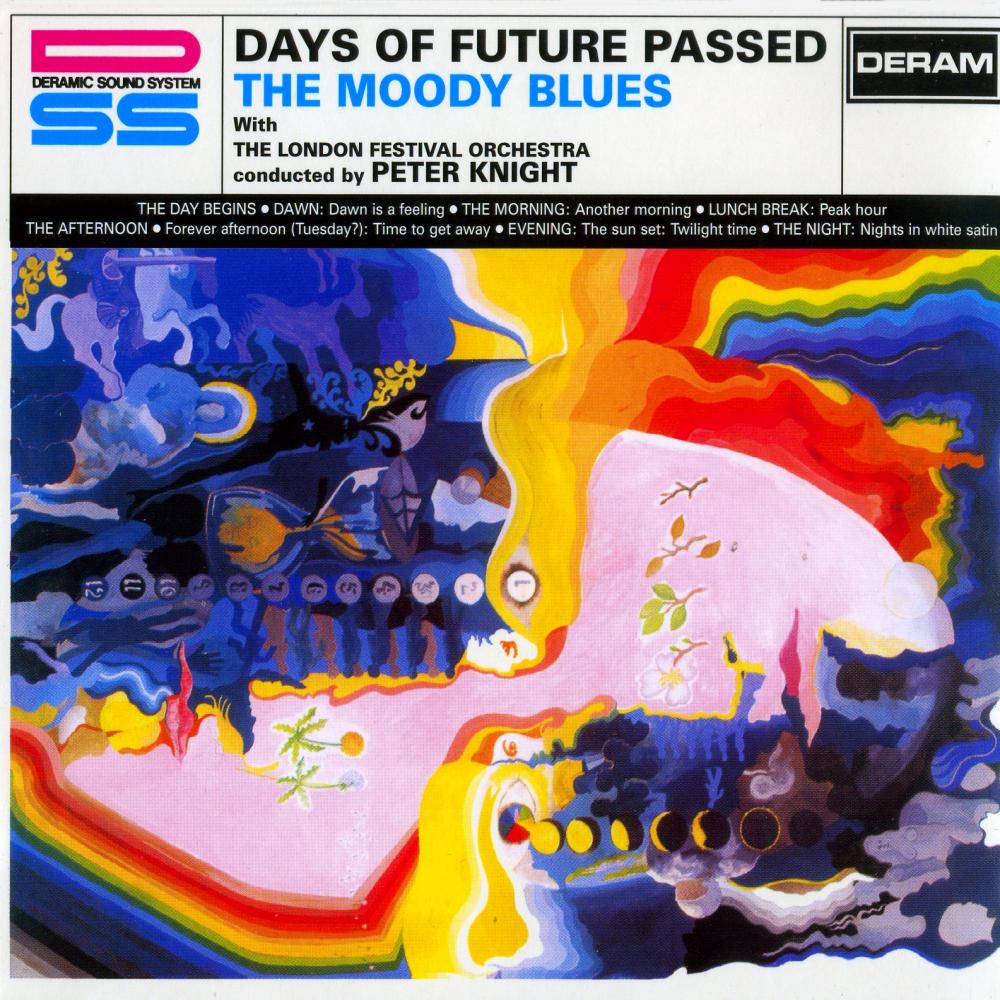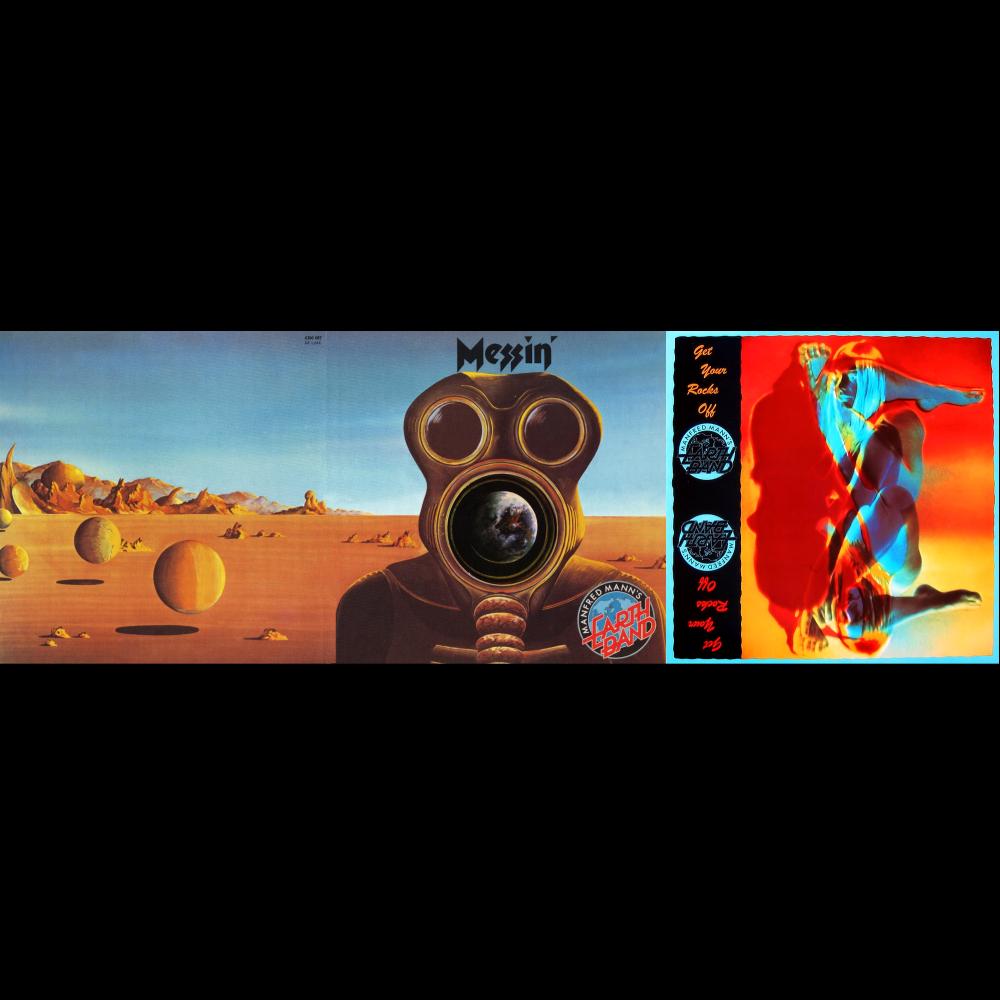
Album Information:
Album ID: 10182
The Moody Blues - Days Of Future Passed
Label: Deram
Catalog Number:
983 215-0
Release Date:
November 10, 1967
Disc 1 - Stereo Remastered Album
1. The Day Begins: Including Morning Glory 5:51
2. Dawn: Dawn Is A Feeling 3:49
3. The Morning: Another Morning 3:56
4. Lunch Break: Peak Hour 5:29
5. The Afternoon 8:23
a. Forever Afternoon (Tuesday?)
b. (Evening) Time To Get Away
6. Evening 6:40
a. The Sun Set
b. Twilight Time
7. The Night: Nights In White Satin 7:26
Disc 2 - Alternate Versions & Outtakes
1. Tuesday Afternoon (Alternate Mix) 4:20
2. Dawn Is A Feeling (Alternate Version) 2:19
3. The Sun Set (Alternate Version Without Orchestra) 2:49
4. Twilight Time (Alternate Vocal Mix) 2:27
1967 Mono Single Masters:
5. Nights In White Satin 4:25
6. Fly Me High 2:54
7. I Really Haven't Got The Time 3:07
8. Love And Beauty 2:24
9. Leave This Man Alone 2:59
10. Cities 2:23
1967 Studio Recordings:
11. Long Summer Days 3:13
12. Please Think About It 3:40
BBC Radio Sessions:
13. Don't Let Me Be Misunderstood 2:23
14. Love And Beauty 2:12
15. Leave This Man Alone 2:52
16. Peak Hour 3:22
17. Nights In White Satin 3:48
18. Fly Me High 2:45
19. Twilight Time 2:08


 Last Played: 12/23/24 03:33 PM
Last Played: 12/23/24 03:33 PM Last Played: 12/23/24 03:24 PM
Last Played: 12/23/24 03:24 PM